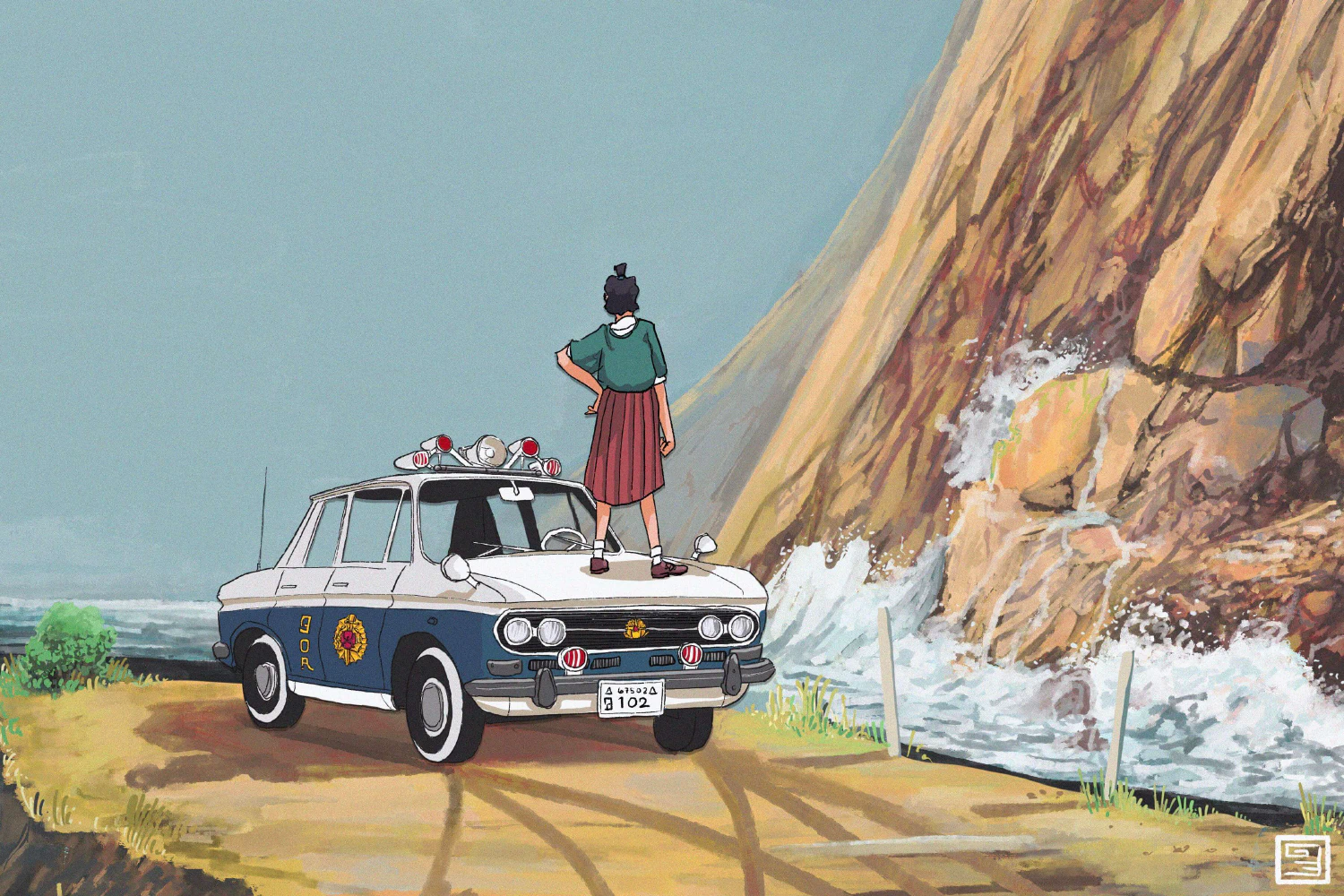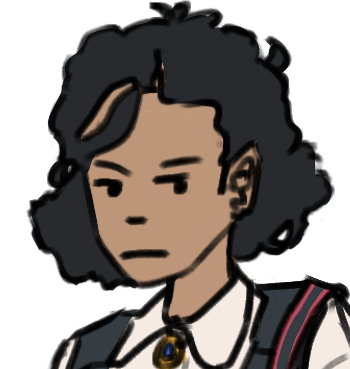NEW Story: Sunday Morning
The Chemical Feast

✿ This article was featured in Issue #1 of the Atlantic Bulletin
East of Montre, West of Tjornes, waits a rare sight among Vekllei’s hard igneous slopes — a crown of gentle sedimentary cliffs packed with ruddy sandstone, which melt glacially into the sea chasing blue-sky bergs.
Tzipora was, at the time, making her way on foot from Montre-Lola to Ada, which was a coastal town in the North-East known for its luxurious health spas. Tzipora was not much interested in health, but she was interested in walking, and she made a pilgrimage along the coast every few years to make sense of the world. She was going whichaway and destined for nowhere in particular. Tzipora was very much Baron’s daughter, in the end.
She had stopped to see the Red Cliffs forty kilometres out from Tjornes when she saw a cruiser of the constabulary parked unusually by the shore. The constabulary were not local police — they were a national outfit tasked with policing government and “bureau business”. You found them at power plants, outside universities, guarding the prime minister and providing bodies for HO/NI (Home Office at National Intelligence) when they needed doors kicked.
Tzipora was not the sort of girl to be intimidated by a badge, and she wandered innocently to the shore where she found the cruiser empty. She looked across a beach of black sand and saw some sort of operation playing out — there was a gun boat not too far from the shore, and a police hydrofoil beached on the sand. She counted maybe a dozen officers. She wondered if they’d arrest her if she walked down to see what was happening. She climbed onto the hood of the cruiser to get a better look. Perhaps it was immigrants — or smugglers.
It only took another moment to spot the smashed crates broken across the rocks before she knew what was going on. She was witnessing the dying days of the countercultural decade, and its chemical fuel was now smashed open before her.
The 2070s were a wild time for the so-called “pink years” in Vekllei, and for the first time in Tzipora’s memory she started seeing “pleasure drugs” on the streets. There had always been plenty of sin carrying on in Vekllei, even in her early days — hallucinogenics, alcohol, and synthesised highs were legal and easy. But you didn’t see much of the exotic stuff, which grew in a better climate. Hash, coke, H — it was all underground stuff for personal use. These drugs were listed among many others in the class-A import prohibition orders, which made them hard to find and illegal to import. These were “pleasure drugs” — the Vekllei phrase for overseas narcotics that didn’t have a place in Upen or a preexisting cultural history. Comparatively, they were just ‘for pleasure’.
H for heroin was a big news item for a long time, and with it you had one the largest moral panics in modern Vekllei cultural memory. Crackdowns came soon after. Tzipora found it difficult to describe the feeling of the time. It was a new generation — one she didn’t belong to, despite her appearance — and she didn’t have much sympathy for hedonists. They might tell her different, but she never thought the pink years were about much more than feeling good all of the time. She wondered if she was growing old and grumpy inside.
She wondered how the crates had got there. Had the coast guard sunk another smugger? You heard about the navy firing shots in the news sometimes.
Ruined with seawater and picked over by constables, the chemical feast of Vekllei’s pink years died with the times. Tzipora wouldn’t miss it.
She stepped off the hood and set off back towards the road, where a warm inn and hot food awaited her.
